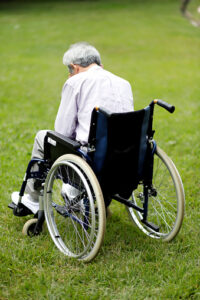In order to determine if red blood cell (RBC) transfusions improve quality of life for hospitalized patients with anemia, researchers from The University of Chicago interviewed 350 hospitalized general medicine patients with anemia for self-reported measures of physical function, fatigue, and fatigability two times—when hemoglobin levels dropped below 10 g/dL during hospitalization and 7 days post-discharge. Fatigability is a standardized measure of fatigue that accounts for activity level and thus physical function. The effects of RBC transfusions were measured by multivariable linear regression controlling for sickle cell anemia, gastrointestinal bleeding, and iron deficiency. Overall, 367 patients were not transfused, 49 received one unit of RBCs, and 34 received two or three RBC units. Patients were stratified by high (N=174) and low (N=176) fatigability level based on the median baseline fatigability level. For patients with high fatigability, RBC transfusions lowered fatigability 7 days after hospital discharge compared to baseline (β=-2.9; P=0.03). In addition, fatigability scores were lowered in a dose-dependent manner according to the units of RBCs transfused, with transfusion of two to three units of RBCs associated with the greatest reduction in fatigability. Trends for the effects of RBC transfusion on fatigue and physical function were similar but not significant. Further research on the effects of RBC transfusions in patients’ quality of life should include fatigability measures.
Reference:

